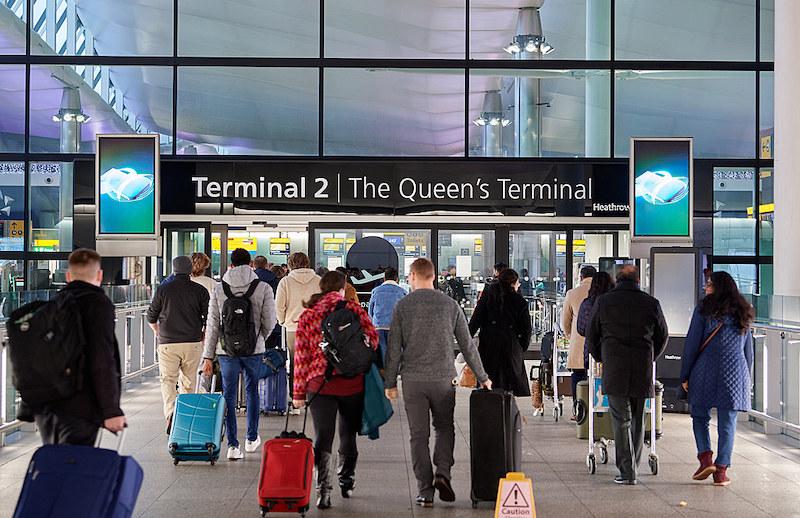
London Heathrow Airport CEO John Holland-Kaye has said that demand for leisure travel continues to “defy all kinds of gravity,” but has warned the UK hub expects a slowdown toward the end of the year.
Speaking following the publication of the airport’s half-year financial results to June 30—which saw pre-tax profits rising 6% to £279 million ($360 million) compared with the same period in 2022—Holland-Kaye said that leisure demand was 3% above pre-pandemic levels during the first six months of 2023 as total passenger figures topped 37 million.
“You would think that with cost-of-living crisis, the high price of airline tickets, some of the global economic slowdown, we would have seen leisure travel coming down,” he said. “I was expecting it to sort of tail off at the end of last year—but it’s still going."
“However, we do still expect that gravity to start to take effect sometime over the next six to 12 months," Holland-Kaye added, "and I think some of the airlines have been talking about that publicly as well. But we want to make hay while the sun is shining.”
Holland-Kaye, who will depart as CEO in October after nine years—to be replaced by Thomas Woldbye, the current CEO of Copenhagen Airport—added that business travel “is still quite some way behind” pre-pandemic volumes, down by almost 20% on 2019 levels. “It will be interesting to see what happens in September, which traditionally is when leisure travel tails off and business travel takes over,” he said.
Heathrow’s cargo tonnage also decreased by 6.8% during the first half of 2023, compared to the first six months of 2022, despite belly-hold capacity being back to normal on many routes. Holland-Kaye blamed the fall on the global economic slowdown, as well as “a Brexit effect” that is seeing cargo being diverted to other European hubs.
Heathrow reported revenues of £1.74 billion for the half year to June 30—a hike of 36% compared with 12 months ago. Aeronautical revenues were £1.16 billion, including £662 million from passenger charges and £454 million from movement charges. Adjusted pre-tax losses halved to £139 million, while the number of passengers handled jumped by 42% to 37.1 million.
Holland-Kaye said that Heathrow expects a final decision from the UK’s Competitions and Markets Authority (CMA) on how much it can charge per passenger over the coming years by Oct. 17.
The UK Civil Aviation Authority said in March that charges for 2023 would remain fixed at the level set out in an interim decision earlier this year at £31.57 per passenger. Average maximum price per passenger will then fall by about 20% to £25.43 per passenger in 2024 and will remain broadly at that level until the end of 2026.
Heathrow has appealed to the CMA, arguing the prices are being set too low. However, some airlines—including British Airways and Virgin Atlantic—are pushing for the cap to be lowered further to about £20 per passenger.
Looking ahead, Holland-Kaye said Heathrow sees India and China as its major growth markets over the next few decades, alongside further expansion in the U.S. “The battleground will be about who can be best connected to not just the primary cities in India and China, but the secondary cities as well,” he said. “That's where the opportunity lies. And that's where expanding Heathrow will allow us to access those markets and win out over competitors like Paris Charles de Gaulle.”
